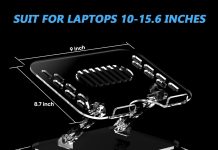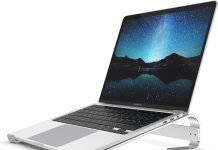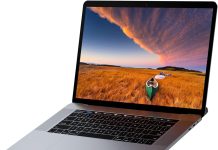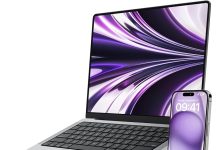In the PC gaming world, an ongoing debate continues to divide enthusiasts: Should you build your mini-gaming PC or opt for a prebuilt system?
Both options have merits and drawbacks, but the decision ultimately comes down to personal preferences and priorities. While building your PC allows for customization and potential cost savings, prebuilt systems offer convenience and support.
In this article, we’ll explore both sides of the argument and help you determine which route is best for your gaming needs.
Review contents
Advantages of Building Your Own Mini Gaming PC
Flexibility to Customize
When you build your own mini gaming PC, you have the freedom to customize it to your specific needs and preferences. You can select the components that fit your requirements, whether it’s a high-performance processor, a powerful graphics card, or ample storage space. This flexibility allows you to create a gaming rig that is tailored to your gaming style and can meet your individual needs.
Cost Savings
One of the significant advantages of building your mini-gaming PC is cost savings. By handpicking each component, you have the opportunity to find the best deals and discounts, resulting in potential savings compared to buying a prebuilt system. Moreover, as you have control over which components to prioritize, you can allocate your budget accordingly, getting the most value for your money.
Higher Performance Potential
Building your mini gaming PC allows you to use the latest technologies and components. You can choose top-of-the-line processors, graphics cards, and other hardware that can provide superior performance, enabling you to play demanding games smoothly and without lag. With the ability to select high-quality components, you can unlock the full potential of your gaming experience.
Quality Control
When building your mini gaming PC, you have complete control over the quality of each component. By handpicking reputable brands and components with good reviews, you can ensure that your PC is built with reliable and durable parts. This control over the quality of the components can give you peace of mind knowing that your PC is built to last and perform exceptionally.
Educational and Fun Experience
Building your mini gaming PC is not just about the result; it is also a highly educational and enjoyable experience. The process of researching, selecting, and assembling components allows you to gain knowledge about computer hardware and how it functions. It can be a rewarding experience to see your creation come to life and understand the inner workings of your gaming rig. Additionally, troubleshooting and resolving any issues arising during the building process can further enhance your technical skills.
Factors to Consider When Building a Mini Gaming PC
Budget
Before embarking on the journey of building your mini-gaming PC, it is crucial to establish a budget. Determine how much you will spend and allocate your budget towards different components. By setting a budget, you can navigate the vast array of options available and make informed decisions that align with your financial limitations.
Compatibility
Compatibility is a crucial factor to consider when building a mini gaming PC. Ensure that the selected components, such as the motherboard, processor, and graphics card, are compatible with each other. Check for specifications and compatibility guides provided by manufacturers to avoid any compatibility issues that may hinder the functionality of your PC.
Size and Portability
Size and portability are significant considerations when opting for a mini gaming PC. Determine the available space you have for your gaming setup and choose a case that fits within those dimensions. Additionally, selecting a compact and portable case will be beneficial if you plan on transporting your PC frequently for LAN parties or tournaments.
Time and Effort
Building your mini gaming PC requires time and effort. Consider how much time you are willing to invest in the process. Research, component selection, assembly, and troubleshooting can take several hours, especially for beginners. Ensure you have the patience and dedication to complete the project successfully.
Technical Knowledge
Having a basic understanding of computer hardware is essential when building a mini gaming PC. Familiarize yourself with terms such as CPU, GPU, RAM, and storage devices. It is also essential to understand how to connect and install components correctly. While building a PC is a learning experience, having some technical knowledge beforehand can make the process smoother and reduce the chances of errors.
Step-By-Step Guide to Building Your Own Mini Gaming PC
Research and Planning
Begin the process by conducting thorough research on the latest hardware components, their specifications, and customer reviews. This research will help you make informed decisions regarding which components meet your requirements and fit your budget. Additionally, plan out the overall layout and design of your mini gaming PC.
Selecting the Components
Once you have gathered the necessary information, move on to selecting the components for your mini gaming PC. Consider factors such as processor, graphics card, motherboard, RAM, storage, power supply, and cooling solutions. Compare different options, read reviews, and strike the right balance between performance, compatibility, and budget.
Assembling the PC
Now comes the exciting part—putting together your mini gaming PC. Begin by carefully unpacking each component and refer to the manuals for instructions. Install the processor, RAM, and storage devices onto the motherboard and securely mount the motherboard in the case. Connect the necessary cables, such as power and data cables, and ensure they are adequately secured. Finally, install the graphics card, attach the cooling solutions, and close the case.
Installing the Operating System and Drivers
With your mini gaming PC assembled, installing the operating system (OS) and necessary drivers is time. Insert the OS installation media (such as a USB drive or DVD) and follow the on-screen instructions. Once the OS is installed, download and install the latest drivers for your components, such as the graphics card and motherboard, to ensure optimal performance.
Testing and Troubleshooting
After installing the OS and drivers, test your mini gaming PC to ensure everything is functioning correctly. Run benchmarking software to evaluate the performance of your components and check for any overheating or stability issues. If any issues arise, troubleshoot them by referring to the manuals or seeking help from online forums or communities.
Prebuilt Mini Gaming PCs: Pros and Cons
Convenience and Time-Saving
One of the significant advantages of prebuilt mini gaming PCs is the convenience they offer. These systems come ready to use, saving you the time and effort required to research, select, and assemble components. Simply unbox the prebuilt PC, connect it to your peripherals, and start gaming right away.
Reliability and Warranty
Prebuilt mini gaming PCs often come with manufacturer warranties that can give you peace of mind. If any hardware issues arise within the warranty period, you can quickly contact customer support and have the components repaired or replaced. This added reliability can be appealing to gamers who prefer a hassle-free experience.
Limited Customizability
While prebuilt mini gaming PCs provide convenience, they often have limited customizability. The components have already been selected and assembled, leaving little room for personalization. Building your own PC may be a better choice if you have specific preferences or requirements that cannot be met by the prebuilt options available.
Higher Cost
Compared to building your mini gaming PC, prebuilt systems tend to be more expensive. This price difference is often due to factors such as labor, research, and warranties included in the cost. If budget is a significant consideration for you, building your PC may allow you to save money or allocate your funds towards higher-quality components.
Lack of Educational Experience
One aspect that prebuilt mini gaming PCs lack is the educational experience of building a system from scratch. By purchasing a prebuilt PC, you miss out on the opportunity to learn about computer hardware, troubleshooting techniques, and the satisfaction of assembling your gaming rig. If gaining knowledge and hands-on experience is essential, building your PC is the way to go.
Best Prebuilt Mini Gaming PCs in the Market
Alienware Aurora R12
The Alienware Aurora R12 is a top-notch prebuilt mini gaming PC that combines performance with aesthetics. It features the latest Intel processor options, upgradable RAM and storage, and a sleek design. The Alienware Aurora R12 offers a premium gaming experience with impressive cooling capabilities and customizable RGB lighting.
HP Omen Obelisk
The HP Omen Obelisk is a powerful prebuilt mini gaming PC with exceptional performance. With options for high-end processors and graphics cards, it can easily handle demanding games. The attractive chassis design, ample storage space, and easy upgradability make the HP Omen Obelisk a popular choice among gamers.
Corsair One i160
The Corsair One i160 is a compact powerhouse that packs a punch. This prebuilt mini gaming PC boasts an Intel Core i9 processor, an NVIDIA RTX 2080 Ti graphics card, and liquid cooling for optimal performance. The Corsair One i160’s sleek design, minimal footprint, and incredible hardware make it a standout choice for gamers seeking high-end performance in a small form factor.
ASUS ROG Strix G15CK
The ASUS ROG Strix G15CK is a prebuilt mini gaming PC that perfectly balances performance and affordability. With options for Intel Core processors and NVIDIA graphics cards, it can handle a wide range of games. The attractive design, well-ventilated chassis, and upgradeability make the ASUS ROG Strix G15CK a compelling choice for gamers on a budget.
Dell G5 Gaming Desktop
The Dell G5 Gaming Desktop is a reliable prebuilt mini gaming PC that delivers solid performance. With options for Intel Core processors and powerful graphics cards, it can provide an enjoyable gaming experience. The compact design, expandable storage options, and reasonable price make the Dell G5 Gaming Desktop a popular choice for gamers looking for a reliable prebuilt system.
Deciding Factors: Building or Buying a Mini Gaming PC
Level of Customization Desired
If you have specific preferences and the desire for complete control over your gaming PC’s components, building your own mini gaming PC is the ideal choice. It allows you to handpick each component and customize your system according to your exact needs and budget. On the other hand, if you prefer convenience and are satisfied with preselected components, a prebuilt mini gaming PC may be more suitable.
Budget Considerations
Budget plays a crucial role in deciding whether to build or buy a mini gaming PC. Building your PC allows you to allocate your budget towards high-quality components, prioritizing performance. It also provides potential cost savings by finding the best deals. However, prebuilt systems often come with additional costs due to labor, warranties, and convenience.
Time and Effort
Consider the time and effort you are willing to invest in building a mini gaming PC. Building a PC requires research, component selection, assembly, and troubleshooting. If you enjoy the process and have the patience to learn, build, and troubleshoot your PC, investing time and effort can be rewarding. On the other hand, if you prefer a ready-to-use system without the hassle of assembly, a prebuilt PC saves you time and effort.
Technical Knowledge and Confidence
Building your own mini gaming PC requires a certain level of technical knowledge. If you are passionate about technology, enjoy learning about computer hardware, and have confidence in your ability to assemble and troubleshoot, building your PC can be a fulfilling experience. However, if you lack technical knowledge or feel overwhelmed by the prospect, a prebuilt PC provides a worry-free option.
Long-Term Plans and Upgradability
Consider your long-term plans and the upgradability of your mini gaming PC. Building your PC allows greater flexibility in upgrading individual components as technology evolves. You can easily swap out parts such as the graphics card or add more storage without significant difficulties. Prebuilt PCs may have limitations in terms of upgradability, and future upgrades may require the assistance of professionals or void warranties.
Conclusion
Whether you build your mini gaming PC or opt for a prebuilt system, both options have advantages and considerations. Building your PC provides the flexibility to customize, potential cost savings, higher performance potential, quality control, and an educational and fun experience.
On the other hand, prebuilt PCs offer convenience, reliability, warranty coverage, limited customizability, and a straightforward setup process.
Consider factors such as your budget, technical knowledge, time availability, and desired level of customization when making a decision. Evaluate the best prebuilt mini gaming PCs available in the market, such as the Alienware Aurora R12, HP Omen Obelisk, Corsair One i160, ASUS ROG Strix G15CK, and Dell G5 Gaming Desktop. Ultimately, make a choice that aligns with your specific needs, preferences, and long-term plans. Happy gaming!
































